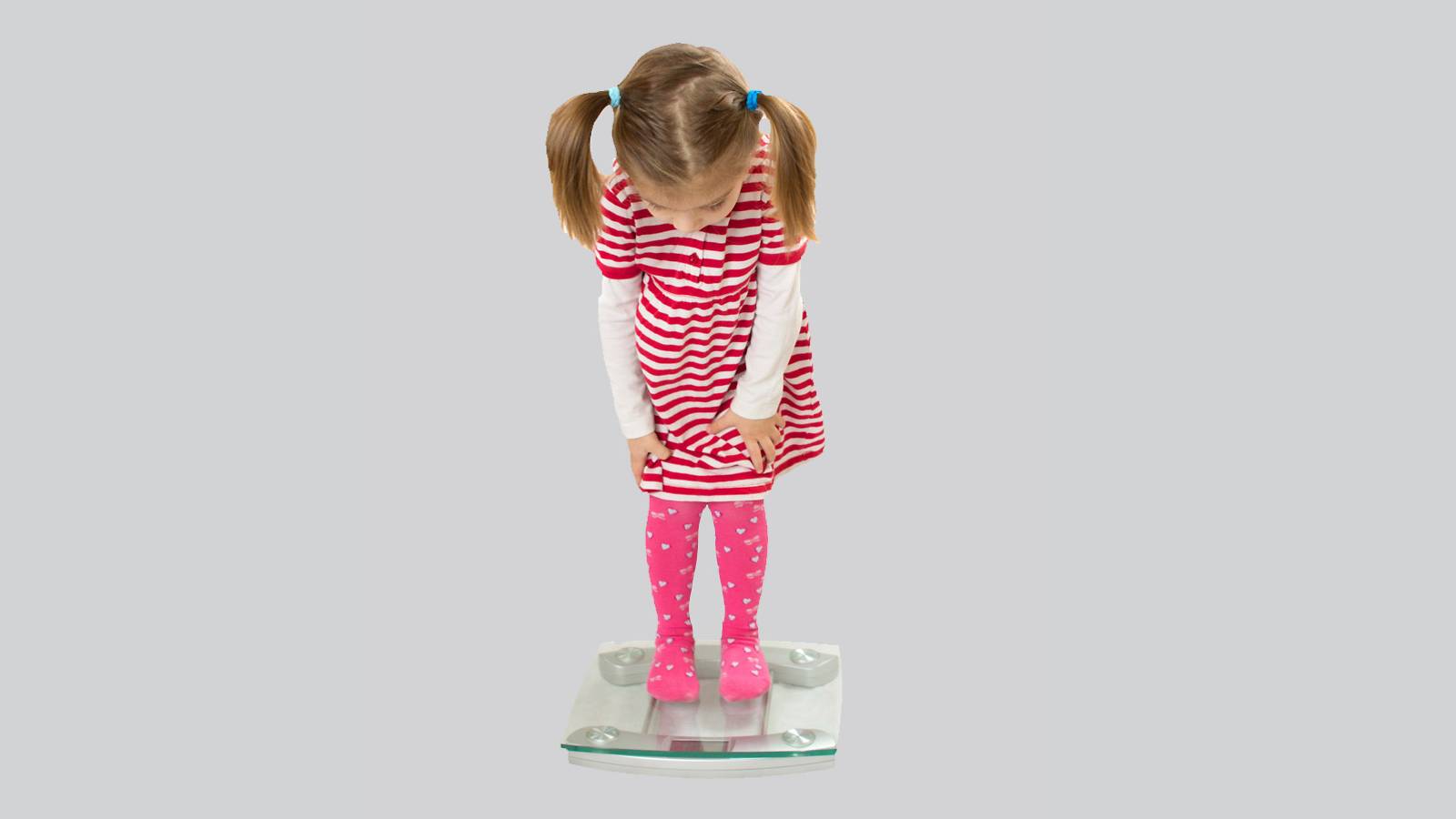Naturally skinny or underweight? Are you really sure your child needs to pack on some pounds?

Your little one might have been a chubby baby, but don’t be surprised when she develops into a beanpole in a few years. Lots of toddlers are naturally skinny, but she’ll shed all that lovely baby fat once she starts getting moving around and walking.
Says Amy Chan, mum to 20-month-old Grace, “Once my daughter hit her 1-year mark, she started to lose those chubby rolls. While I didn’t think it was an issue, I had elderly relatives asking me if she wasn’t eating, or why I didn’t feed her more.”
It’s not common for children to be underweight, says Kinder Clinic paediatrician Dr Vera Oh. Sometimes, when the child’s parents or grandparents think they are underweight or not heavy enough, it’s usually a perception, especially if the child is in the 10th or 25th percentile. “There’s a perception that the child has to be yuan yuan, fei fei, pang pang (round and chubby), but that’s not necessarily the best thing for the child,” Dr Oh notes.
“There’s a perception that the child has to be yuan yuan, fei fei, pang pang (round and chubby), but that’s not necessarily the best thing for the child.”
Many children are naturally skinny or slim, especially if you and your husband are also thin, or were thin as children. “They gain weight very rapidly for the first year or two, then after that, it slows down. That’s normal. There is a problem if the child does not gain weight or if the weight is dropping,” Dr Oh says.
So, how do we tell if junior is underweight, or if it’s a cause for concern? Dr Oh recommends parents refer to the charts in their child’s health booklet so that they can compare their child’s height and weight against their peers. “Generally we’d say that children who are in the less than 3 percentile ― lighter than 3 per cent of the population of the same sex and age ― will be considered underweight.”
Nor is being underweight a cause for concern. “There may not be anything abnormal,” adds Dr Oh. “It just means that this child is lighter than 3 per cent of the population and you should take note of that.”
So, what should you do if your child is underweight? Read on…

Underweight children
Parents should take note if their child falls into one of these categories:
1. Sudden loss of weight;
2. Belongs to the less than 3rd percentile category;
3. Falling suddenly on the weight percentile charts, unless the child was overweight to begin with.
If your child is underweight, she should be assessed to determine if she has any underlying medical conditions. According to Dr Oh, if your child’s weight is at the lower end of the chart, but she continues to grow within this range, there’s probably no cause for worry, especially if the weight is proportionate to her height.
“But if the child keeps losing weight, that’s not normal,” says Dr Oh. A doctor should check that she doesn’t have an underlying medical condition that is affecting her ability to grow properly. These include heart conditions, or a chronic infection, or an endocrine hormonal condition that causes her to not put on weight normally, she explains.
The child may also not put on weight is if she is not eating well. Possible reasons for this include an undiagnosed food allergy or sensitivity (her tummy hurts when she eats), loss of appetite due to stress or anxiety, or celiac disease (gluten intolerance), where her body does not absorb the nutrients from foods well.
The doctor would want to see what the child’s food intake is, and whether it’s on par with what other children her age are eating, notes Dr Oh. This can be done with a food diary. “Sometimes, the parent thinks that the child is eating well, when she is not. Or they may be eating foods that are not as nutritious as they think,” she adds.
A doctor should check that she doesn’t have an underlying medical condition that is affecting her ability to grow properly.
In some situations, the parent may actually be too healthy, or restricting the child because they think that the child has a perceived allergy or food problem. “Because of that, the child doesn’t get as many calories as she should.”
Picky eaters
If your child is a picky eater, don’t pressure her to eat more, just so that she’ll put on some flesh on her bones. Parents should look at what their offspring is eating, and what is being put on her plate. Dr Oh advises. “Sometimes, it’s a textural thing. You need to work with them and let them experiment with the different types of food.”
She also notes that some parents keep their mini-me on soft textures for longer than advisable, so they get “kind of stuck on it”. “You just have to be patient and try again and again,” she says. But if she doesn’t improve, you might need to consult a speech therapist, who can work with children who have problems swallowing.
Another issue might be role modelling and behaviour modification. Dr Ong advises, “Perhaps the child just needs to sit down at the table and eat with her parents. And let the child feed herself, so she doesn’t get distracted.”
Photos: iStock
Also check out…
